‘I miss the applause’: The travelling Italian circus left stranded by coronavirus
In March, the Rony Roller Circus came to the outskirts of Rome to perform. But after the outbreak of Covid-19 its performers have been left in limbo, writes Jason Horowitz
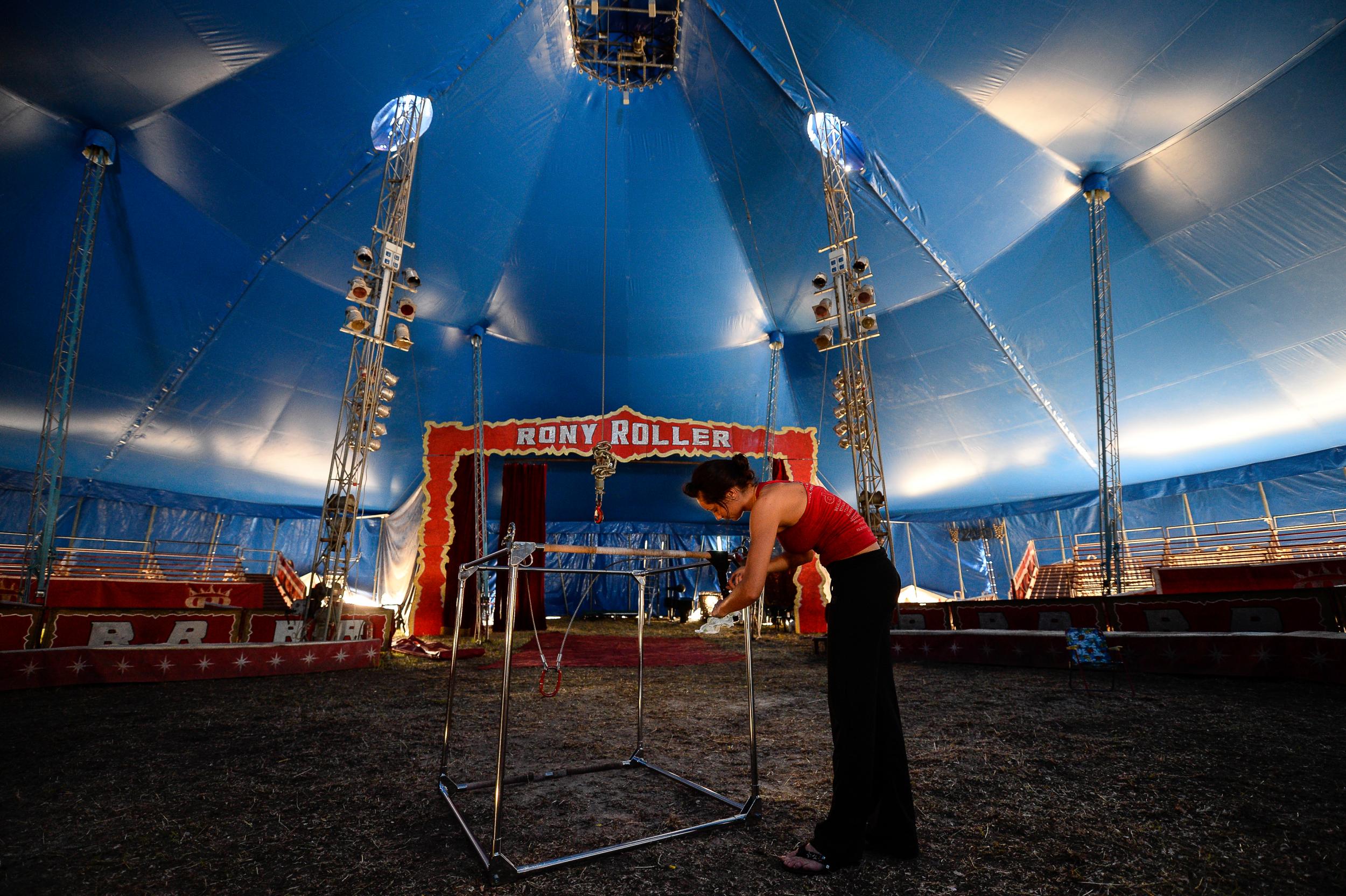
At the end of Italy’s coronavirus lockdown, one of the camels broke free.
On a narrow field surrounded by low-rise apartments, bus stops and a tangled ribbon of highway ramps, the camel scampered past lions, which leapt against their cage. It distracted the acrobats practising their flips on an aerial hoop and sauntered towards the languid, pregnant tiger, and stalls of horses and African Watusi bulls.
An animal tamer, wearing a welding helmet as he attended to some repairs, quickly chased the camel down.
In early March, the Rony Roller Circus came to Corcolle, on the outskirts of Rome. And because of Italy’s coronavirus epidemic, it has stayed there.
“We’re stuck,” says Daniela Vassallo, 52, as she walks to the field and steers clear of Giulio, the escaped camel.
A former contortionist-turned-administrator, Vassallo belongs to a family that has worked in the circus for at least six generations and has owned this particular show for 29 years. The last period has been perhaps the least eventful, as she and her relatives and assorted circus performers have passed the months here hunkered down in trailers next to peppermint-striped tents.
In reality, the Rony Rollers aren’t trapped so much as unwilling to go their separate ways. Like other dynasties in Italy’s vibrant, 60-circus strong big-top culture, the Vassallos own homes and property about an hour south in Latina, a town which is to circus people what Tampa, Florida, is to professional wrestlers.
While eased travel restrictions left them free to leave with their menagerie and tents since early May, Daniela Vassallo says that Latina was packed with other circus acts and animals, and that her performers dreaded the solitude of home isolation. She says the troupe had agreed it was preferable to keep renting this land across from a cornfield and pass the lockdown training together.
“Better in the company,” she says was the consensus, “with my people.”
The problem is that they don’t exactly know what they are training for. And Vassallo is furious that the government hasn’t deigned to discuss their plight.
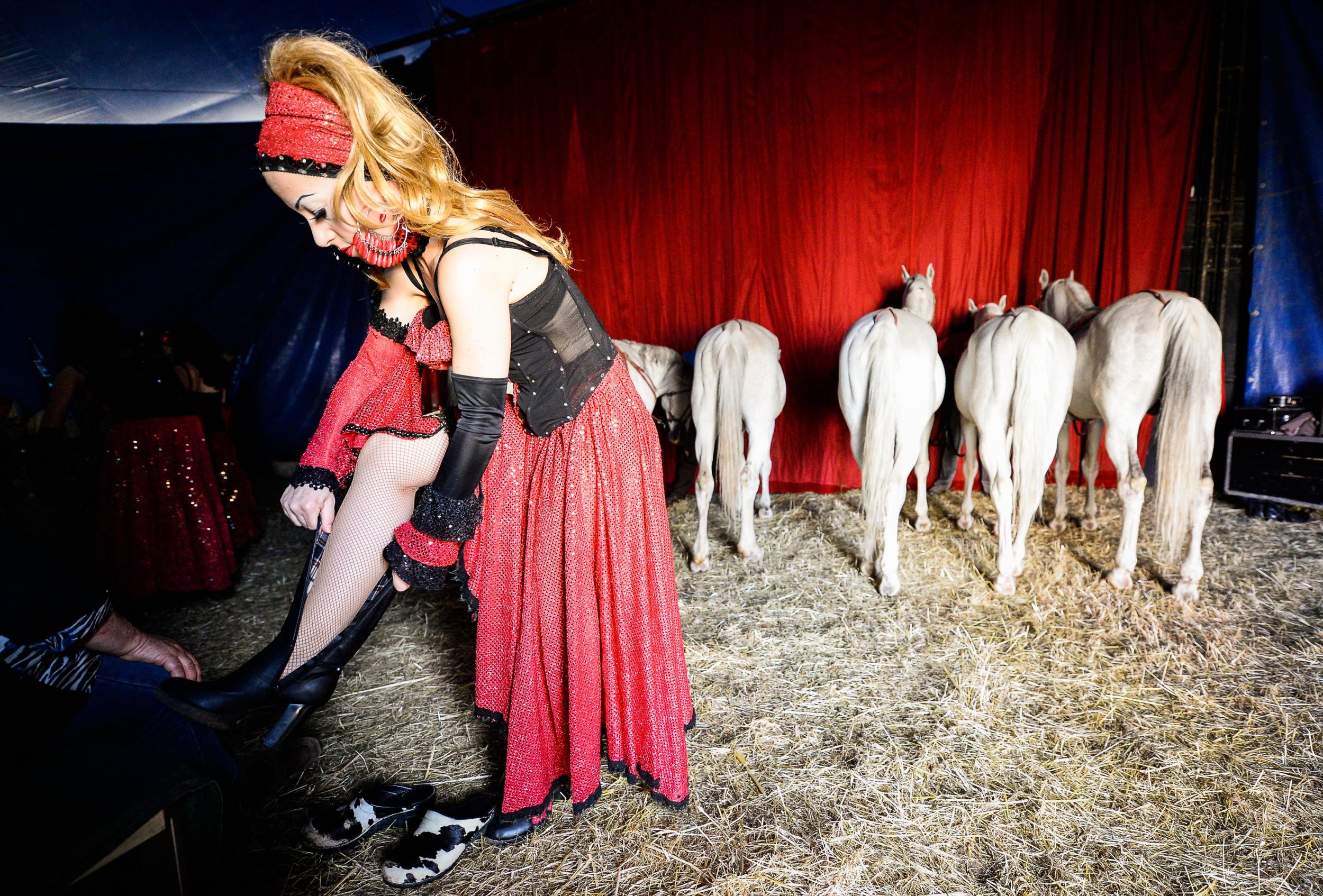
“They talk about lyrical opera, plays and cinema, but they never ever mention the circus,” Vassallo says. “We are invisible. We have no political power and less economic influence than ever. We are only left here to wait.”
The government may not have a circus-specific decree, but it has made it clear that theatrical performances are out of the question until 15 June. Even then, performances will be permitted only with assigned seats at least a meter apart, with no more than 1,000 patrons allowed out in the open and 200 in a closed area, such as, say, under a big tent.
The Rony Rollers, which shut down in the middle of a two-week run on 10 March 10, doesn’t see the point.
“We decided not to open in these conditions,” says Vassallo, who can’t imagine putting on a show without the jam-packed crowds, “the magic” – and she acknowledges, “the profits”, of popcorn and candy floss.
The four lions lounge in their cage, staring at the adjacent Great American Bison in a ring of pale hay as if it were a Great American Bison Burger in the centre of a bun
Instead the Rollers have spent weeks mulling next steps on this sliver of land outside Tivoli, best known for the summer residence of the emperor Hadrian. That has also closed down.
Surrounded by flocks of sheep, vegetable fields and rest stops, the roughly 30 members of the circus, many related (“a typical Italian family,” Vassallo says) have had to content themselves with passersby who come to admire the tigers, acrobats and jugglers.
On a recent afternoon, as one local couple marvelled at the lions, the family’s patriarch, Edoardo, who disdains the Felliniesque depictions of Italy’s circus-folk as wild and tragic, brought water to the horses. (“This is his kingdom,” Vassallo says.)
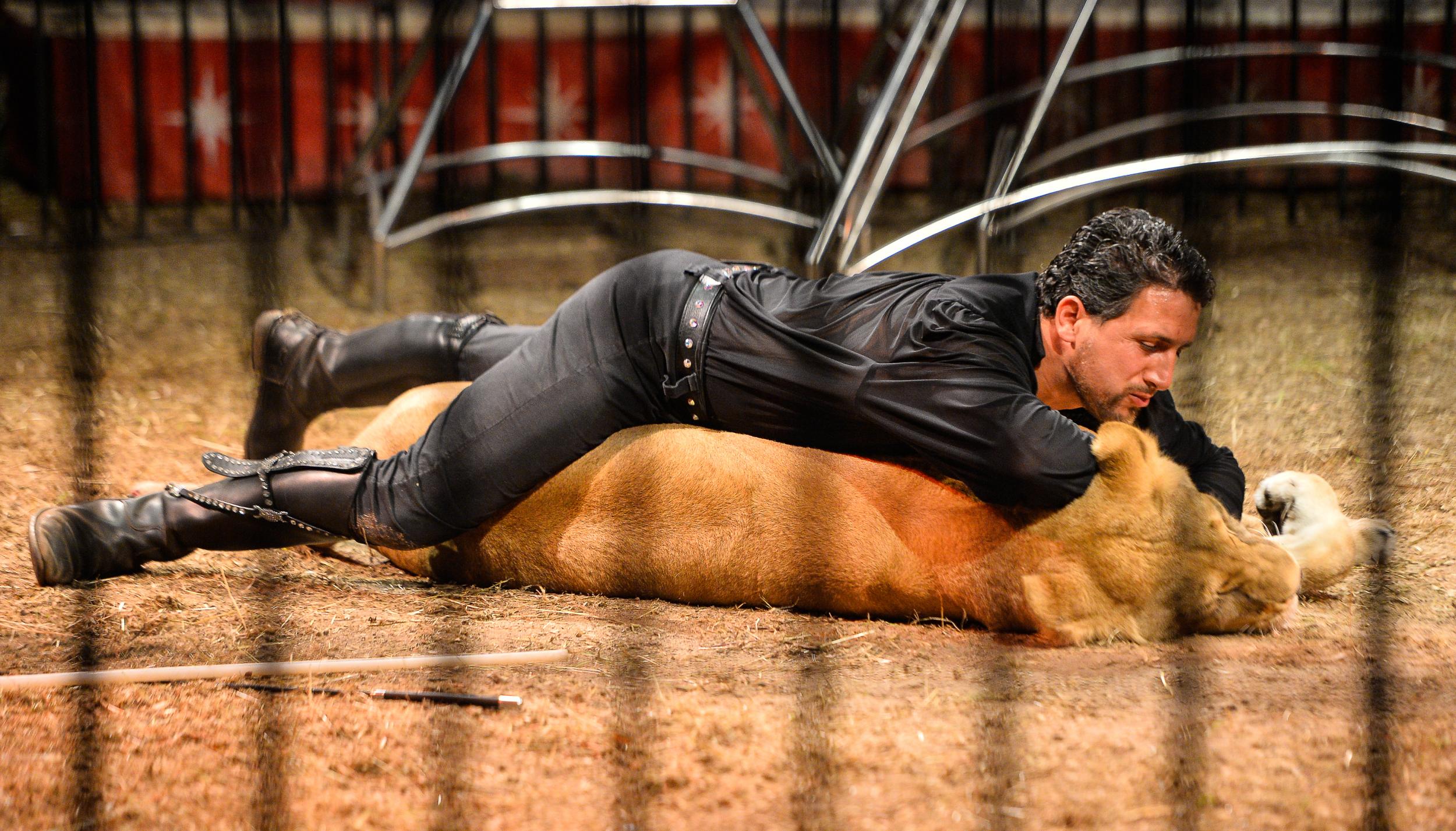
Her son Aris, 22, (“the acrobatic Spiderman”) helps fix the unused bleachers while her brother, Rony, keeps the lions and tigers tamed by running through the routines. “You don’t want them to lose the smell of the humans,” she explains.
The four lions lounge in their cage, staring at the adjacent Great American Bison in a ring of pale hay as if it were a Great American Bison burger in the centre of a bun. A few yards away, two tigers, one expecting, lay on their sides.
The circus buys the meat for the animals (it is a circus tradition to feed the animals first) but an agricultural association donates hay for the herbivores. Caritas, the charity arm of the Roman Catholic Church, donates vouchers to the travelling performers to redeem in church food markets.
The Italian Circus Association, which represents 20,000 workers, has requested €10m (£9m) in relief funds from the Culture Ministry while circus owners have appealed for tax suspensions and workers have had to access unemployment benefits.
“It’s a sad period,” says Daniel Aanitei, 28, Daniela Vassallo’s nephew, who walks up wearing a white mask over a short beard. “We’re in quarantine and we can’t do anything. And my girlfriend of three years, she just left me. At the worst possible time.”
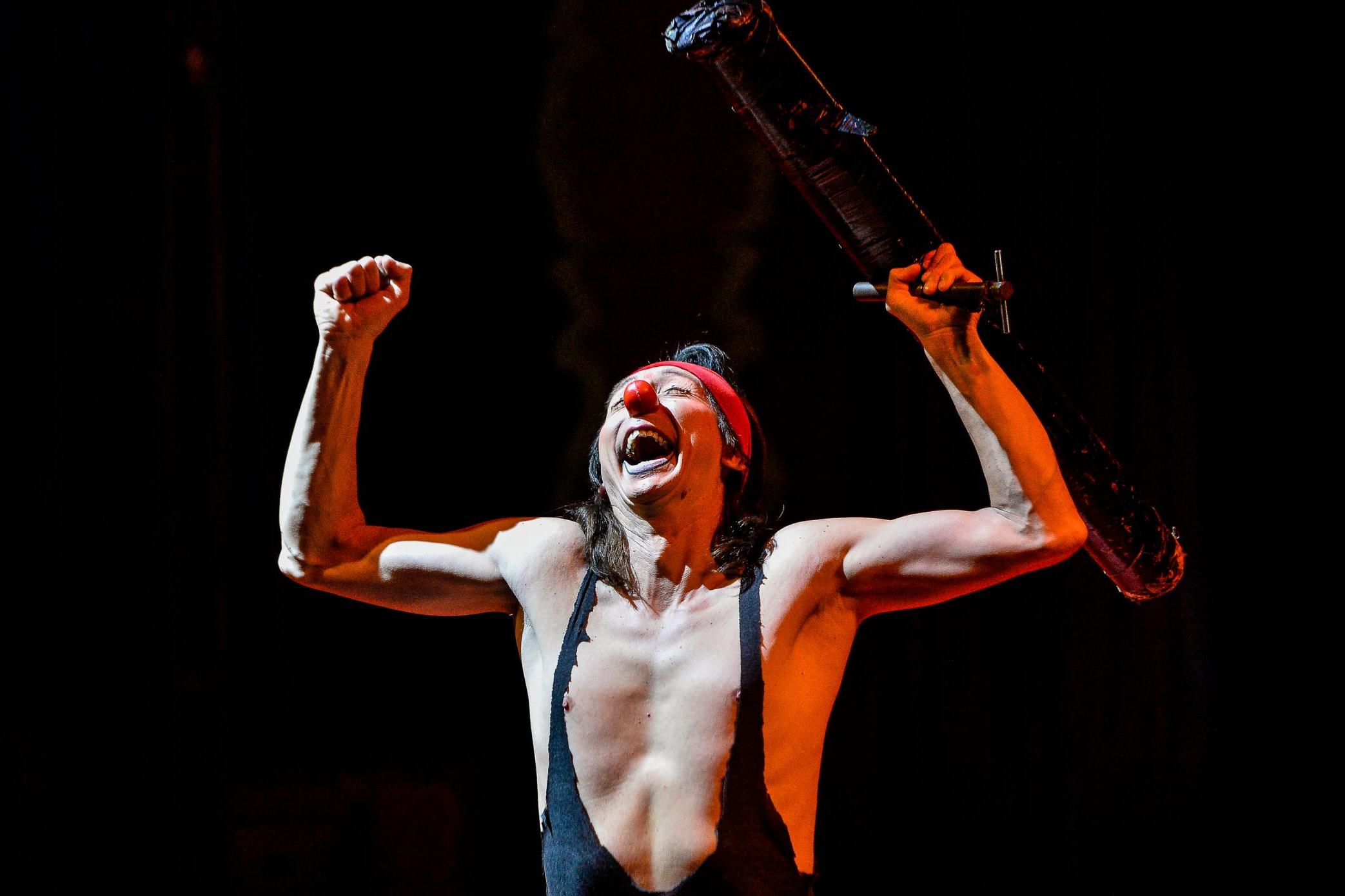
He walks off.
“He’s a clown,” Vassallo explains.
The troupe live in caravan trailers. The children keep up with the online lessons of the school, where they were enrolled before the virus broke out. They do maths under family portraits taken with tiger cubs and then take turns gliding over the dirt on pink roller skates, pulled by a pet Chihuahua.
In the back of the field, a foot juggler stepps out of her trailer to show off the stars of 101 Dalmatians, the name of the show suspended because of the outbreak. She whistles sweetly and a ferocious pack of feral dogs baring their teeth leapt at, and nearly over, a protective fence.
For decades the arrival of a travelling circus to Italy’s far-flung provinces was a major event. That kind of excitement has faded, and the mauling-death of a tamer by four tigers in southern Italy last year momentarily prompted parliament to debate banning circus animals. But the furore died down and shows still cast a spell over many Italians.
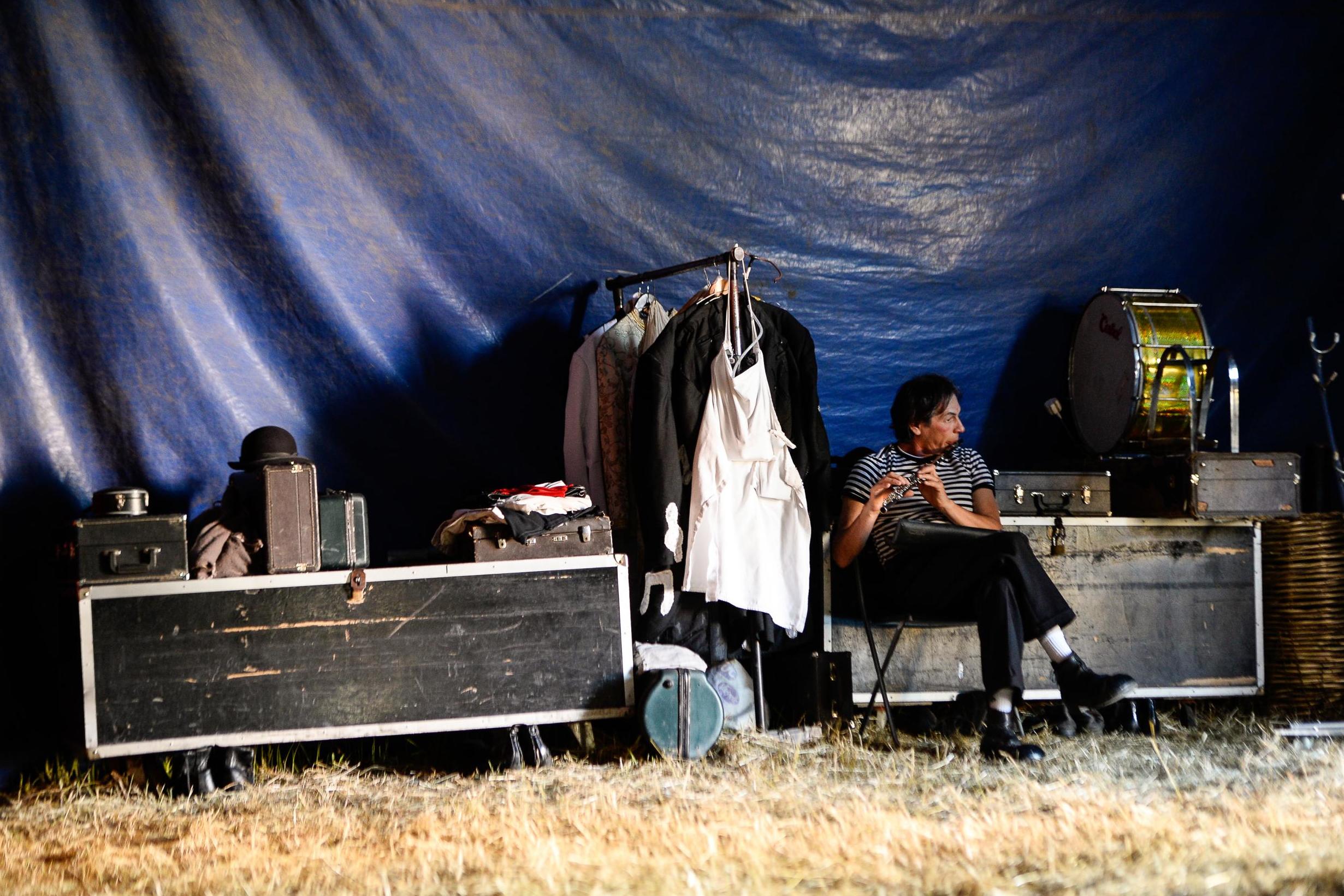
On country roads, red-and-yellow, frozen-in-time circus posters are slapped up on the walls of underpasses. Some faded ones still carry the names of the late circus queens Lidia Togni and Moira Orfei, aka Moira of the Elephants, who appeared in many Italian sword-and-sandal movies.
But now the Togni circus, celebrating its 150th year, is stuck in Salerno with performers picking up unemployment, practising their routines and praying for the epidemic to pass. (“We are the only circus to have a church,” Vinicio Togni tells a regional television station.) In the Sicilian town of Caltanisetta, Vassallo’s cousin, a horse tamer named Claudio, is stuck with the rest of the Sandro Orfei circus.
Vassallo says circus performers are stuck all over the world.
One of her 23 cousins (“on my father’s side”) is stuck in Greece, another in Portugal. Her cousin, Davis Vassallo, “the last of the great clowns of Ringling Barnum and Bailey,” is stuck in Moscow.
“It’s a disaster,” says her brother, Rony.
Things got worse Tuesday, when the owner of the field told them he needed his land back. In order to stay together, the troupe has scoped out another field outside Rome where they could plan and prepare for their big winter show. If, that is, the coronavirus allows it.
“I miss the applause, the tent, the colours of the lights,” Vassallo says. “Everything is missing.”
© The New York Times
Join our commenting forum
Join thought-provoking conversations, follow other Independent readers and see their replies
Comments
Bookmark popover
Removed from bookmarks